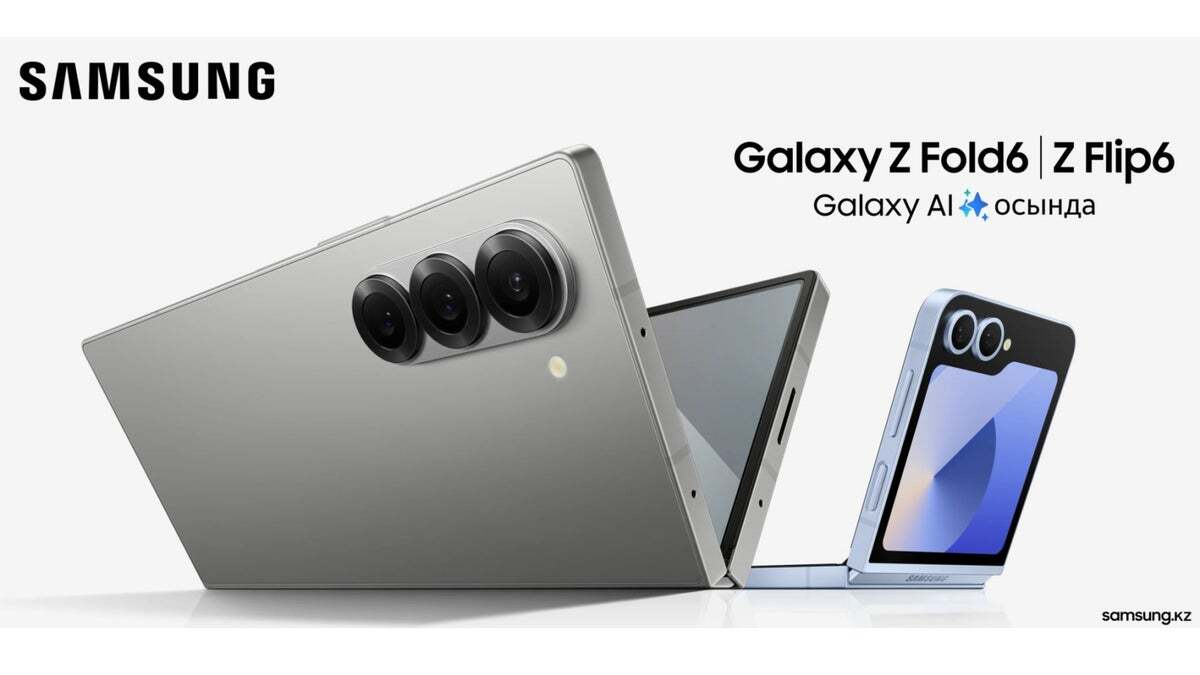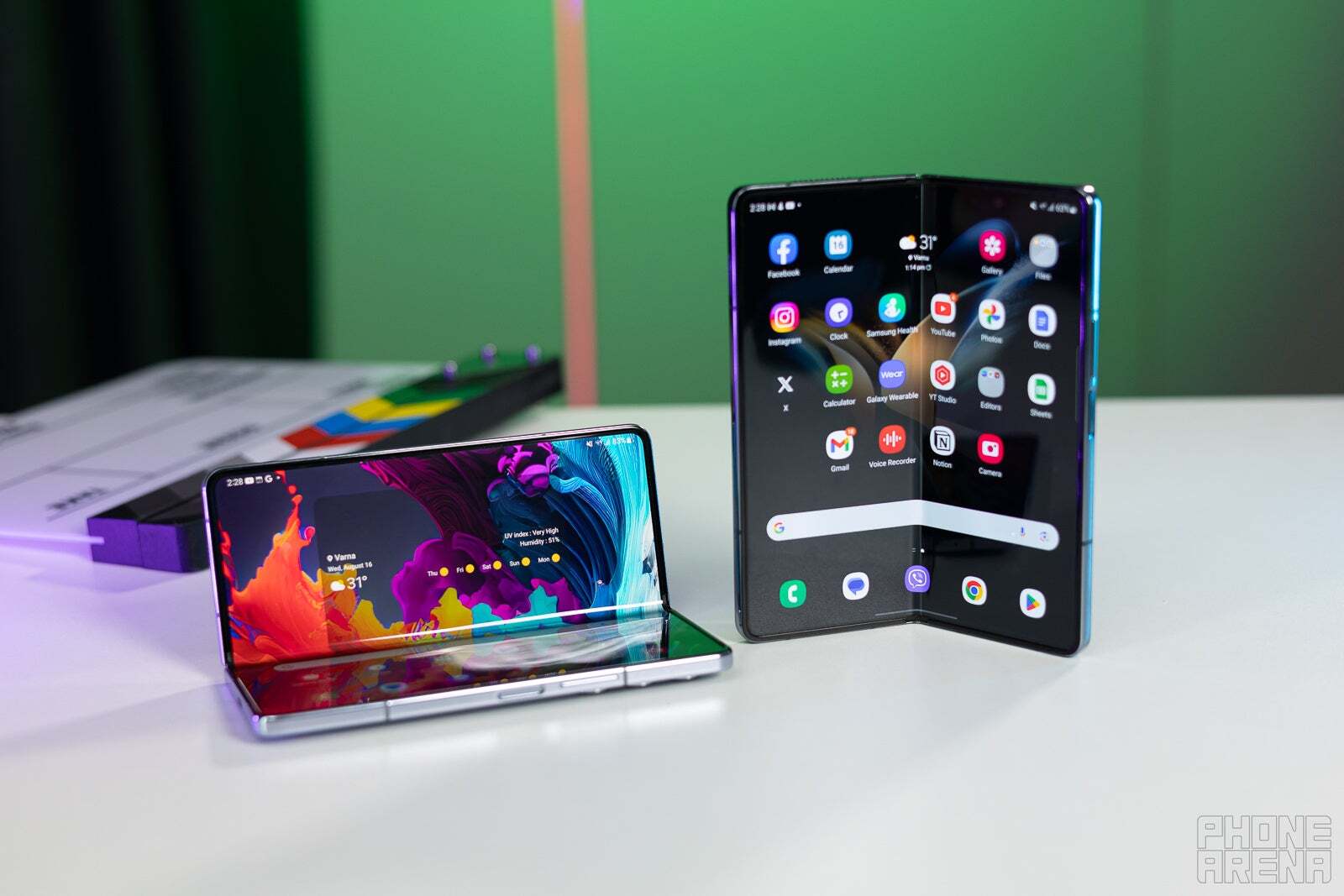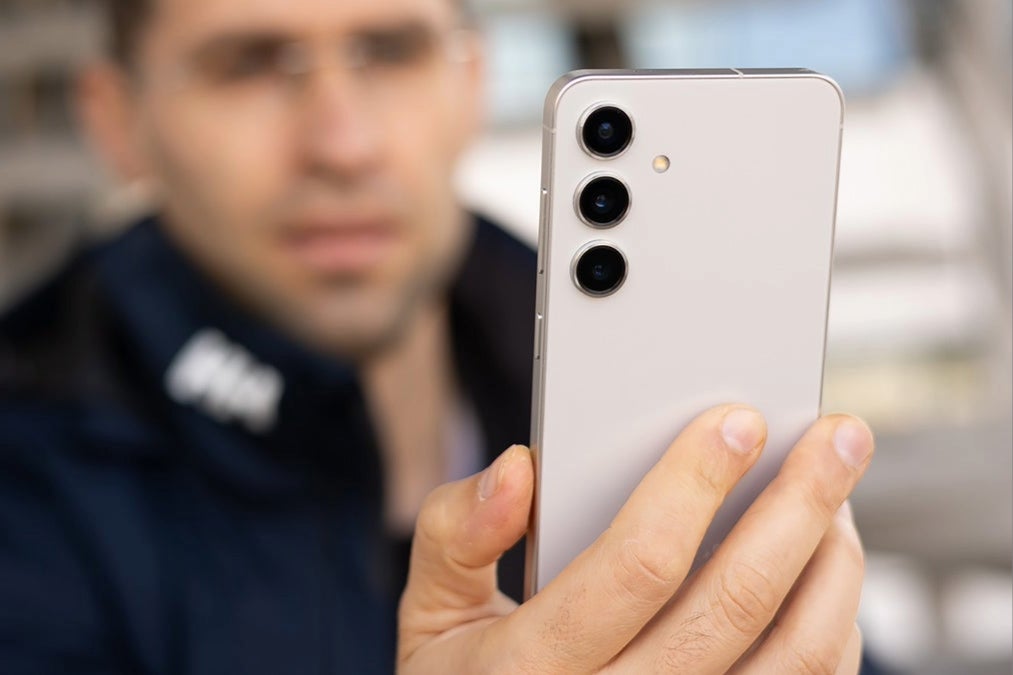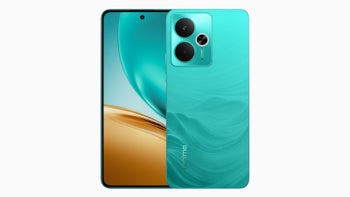Galaxy Z Fold 6 and iPhone 16 don't mean you need to upgrade yearly

iPhone 15 Pro Max (on the left) next to Galaxy Z Fold 5 (on the right) | Image credit — PhoneArena
So, why am I asking this? Well, the recent leak about Samsung's upcoming foldables, the Galaxy Z Fold 6 and Galaxy Z Flip 6, shows phones almost identical to their predecessors. The iPhone 16 pro models also appear strikingly similar to the previous generations, except for tweaks like slimmer bezels.

This is the leaked marketing image showcasing the upcoming Galaxy Z Fold 6 and Flip 6
Specs also don't undergo drastic variations. Aside from some performance boosts and camera upgrades, not much else changes substantially on an annual basis.
Perhaps if they rolled out flagship phones every two to three years instead, it would align better with the pace of technological advancements. This way, the upgrades would likely be more substantial and deemed worth the hefty $1000+ investment.
Incremental improvements, not leaps

The Galaxy Z Fold 5 on the right next to the Galaxy Z Fold 4 on the left, or is it? | Image credit – PhoneArena
Yes, there are always new chipsets boasting marginally faster processing speeds. We're talking milliseconds shaved off app loading times, a difference most users wouldn't even notice in daily use.
For example, the iPhone 15 Pro boasts a new A17 Pro chip, one of the fastest on the market at launch in 2023. But the A16 Bionic chip in the iPhone 14 Pro, released a year prior, is still a powerhouse.
Camera upgrades often focus on megapixel counts, but megapixels alone don't guarantee better photos. And yes, camera sensors, for example, promise slightly better low-light performance, but how often are you taking pictures in near darkness anyway?
For the average user, these advancements translate to minimal real-world differences. Our current flagships are already incredibly powerful. They handle demanding games with ease and capture stunning photos even in decent lighting conditions.
The leap from the first Galaxy Fold to the Galaxy Z Fold 2 was huge, as technology was rapidly advancing from the first semi-conceptual device to the more refined products. However, since then, we've seen incremental upgrades each year, with the differences between the Z Fold 3, 4, and 5 being quite minimal.
The extended life of flagships

With the promise of seven years of OS updates, Galaxy S24, shown in the image, will receive the latest Android versions until 2031. | Image credit – PhoneArena
Adding fuel to the "upgrade fatigue" fire is the commitment from major players like Samsung and Apple to provide years of software and security updates for their flagships. A phone purchased two, three, or even more years ago will still receive the latest operating system updates, keeping it secure and functional. This extends the lifespan of these devices considerably.
Samsung is actually promising seven years of major Android and security updates for its latest flagship products, such as the Galaxy S24 series.
Think about it: if your current flagship phone runs smoothly, handles all your tasks flawlessly, and receives regular security updates, is the allure of a slightly faster processor or a marginally better camera enough to justify spending hundreds or even thousands of dollars on a new model?
The case for innovation, not iteration

Isn’t it exciting to see which smartphone takes home the gold for innovation? This image was created with AI.
This isn't to say innovation is dead. There's still plenty of room for exciting advancements in the smartphone industry. But perhaps those advancements would be better served as revolutionary breakthroughs rather than yearly iterations of existing technology.
Don't get me wrong, innovation is exciting. I am all for groundbreaking features that truly change the way we interact with our phones. Imagine foldable screens where no hinge is visible at all, advanced AI-powered cameras that can rival professional photography equipment, or batteries that can last longer. Perhaps a longer update cycle would allow manufacturers to focus on these types of leaps rather than small tweaks.
So, do we really need an upgrade every year?

Oh, is it upgrade time again? Let's put a pin in that and decide
The current trend of yearly flagship upgrades seems more about marketing hype than groundbreaking innovation. Usually, new phone launches generate significant hype and sales, especially during the initial launch window. This translates to profits for manufacturers and carriers, who often have upgrade deals tied to new releases.
Also, the smartphone market is fiercely competitive. By releasing a new phone annually, companies ensure they have the "latest and greatest" on the shelves to compete with rivals, who are also on a yearly release cycle.
And I know not all of us buy phones at the same time (duh, that would be absurd to even consider). But when it is time for a new device, wouldn't it be fantastic to know you're getting the best value for your money? Even if it means a phone released a year ago, but one that remains top-of-the-line for two or three years, rather than just a few months before leaks about the next model start circulating.
After all, wouldn't a truly groundbreaking phone, released every two or three years, be more exciting for everyone?










Things that are NOT allowed: